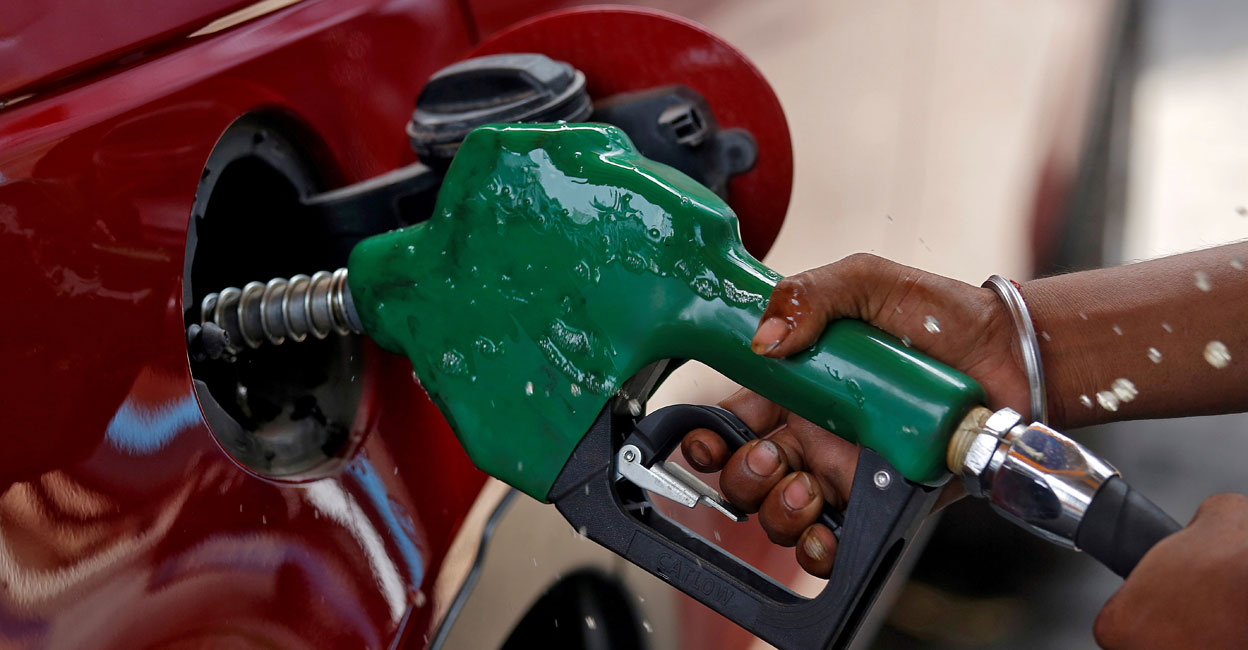Petrol, diesel in Kerala to be among the most expensive in the country
Kochi: Kerala would soon have the highest fuel prices in India along with Telangana and Andhra Pradesh as per the budget proposal to impose a social security cess of Rs 2 on every litre of petrol and diesel.
Currently, petrol sells at Rs 100 and diesel at Rs 99 per litre in Telangana and Andhra Pradesh. In Kerala too the prices will be similar when the social security cess is imposed.
At present, petrol costs Rs 108 and diesel Rs 96.79 in Thiruvananthapuram. The price is slightly less in Kochi, at Rs 105.72 for petrol and Rs 94.66 for diesel.
Kerala, Telangana and Andhra also top the list of Indian states imposing the highest tax rates on fuel, with Telangana in the first position with a tax of 35.20%.
Incidentally, the Centre had reduced the Excise Duty on petrol and diesel in November 2021 and May 2022 in order to stabilize prices in India as global crude oil prices soared in view of the Ukraine crisis. Subsequently, several states including Tamil Nadu, Delhi, Maharashtra, Rajasthan and Karnataka also reduced the taxes they imposed on these fuels. These decisions significantly brought down fuel prices in states such as Rajasthan and Maharashtra, which had among the highest rates in the country.
However, Kerala and Telangana did not reduce their taxes on fuel. Kerala pointed out that it had not increased the tax on petrol and fuel for the previous six years to justify its decision not to order a cut.
Over the last two years, the Centre has reduced the Excise Duty by Rs 13 per litre on petrol and Rs 16 on diesel. Kerala has implemented only a proportional decrease in prices.
The fuel prices in the country have remained unchanged since April 6, 2022.
Kerala sells around 51 lakh litres of petrol and 63 lakh litres of diesel every day.
A comparison
Compared to other major cities in the country, fuel prices are higher in Kerala’s capital Thiruvananthapuram. For instance, petrol is cheaper by Rs 7 and diesel by Rs 8.96 in Bengaluru, compared to Thiruvananthapuram. Karnataka had reduced value-added tax (VAT) from 35 to 25.9 per cent in November 2021.
Similarly, in Chennai, petrol sells at Rs 5.37 less than Thiruvananthapuram and diesel Rs 2.55 less per litre.
In Mumbai also, petrol costs Rs 1.69 less and diesel Rs 2.52 less than the Kerala capital. Six months ago, the Maharashtra government had cut the cess on petrol by Rs 5 and on diesel by Rs 3.
All-round price-rise looms
Higher petrol and diesel prices are expected to lead to severe inflation in Kerala as bus, auto and taxi fares as well as prices of vegetables and other essential commodities too would go up. Even though the budget has allocated Rs 2,000 crore for market intervention to check inflation, the amount would be insufficient, said experts. Moreover, government departments have so far failed in their efforts at market interventions, pointed out the experts.
According to the experts, the government expects only Rs 750 crore by imposing the cess on fuel. Instead of charging this cess, the budget could have adjusted Rs 750 crore from the Rs 2,000 crore allocated for combating inflation, thereby sparing the common people and preventing inflation.
Meanwhile, political observers said that after imposing the cess on fuel, Kerala will no longer be able to blame the Centre for the price-rise in the state.
Easy money
Tax on fuel is a source of easy money for the Kerala Government. Oil companies pay around Rs 4,500 crore a month to the state on this account. In fact, the companies are prompt in these payments. The additional cess of Rs 2 per litre is expected to add another Rs 750 crore to this amount.
For all the latest business News Click Here

